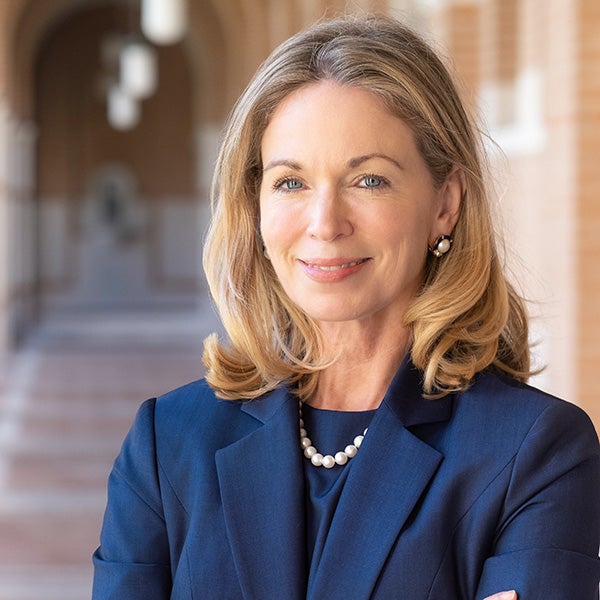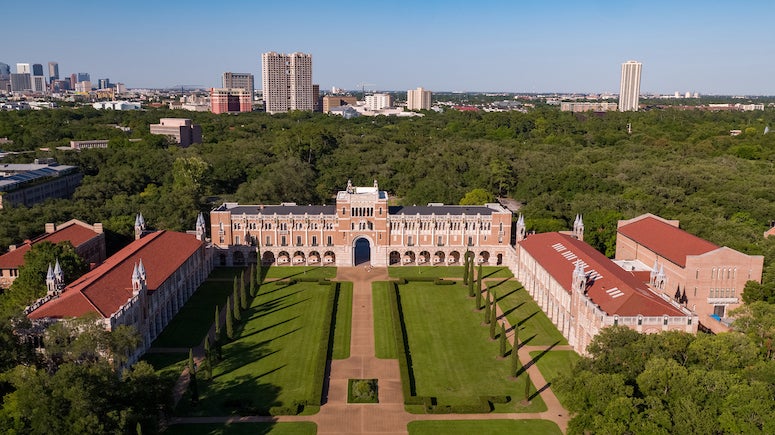Digital learning at Rice University is entering a new phase, underpinned by an enhanced focus on development and innovation.

As digital and global initiatives at Rice have grown through the years, so has the need for more concentrated attention and resources to support both. To make this shift possible, Rice has split the two offices and will soon announce a new associate provost for digital learning and strategy, who will develop and lead an institutionwide strategy for enhancing online education and digital innovation in the classroom.
Vice President for Global Caroline Levander, who previously led digital and global strategy at Rice, will continue to oversee the global strategy as Rice Global expands to provide unmatched learning and research opportunities to Rice students and faculty in the United States and abroad. This includes the Rice Global Paris Center, which recently concluded its inaugural summer series of events, and leading the development of a comprehensive global strategy that will include Paris, India and locations in Latin America.
Levander has led Rice’s digital and online strategy for more than a decade, and her work to build and lead the team at Rice Online Learning has been instrumental to the university’s growth in this area.
“Caroline and the high-performing Rice Online Learning team is known industrywide for its excellence,” said Provost Amy Dittmar, who Rice Global and Digital Learning report to. “They have displayed a strong commitment to working hand in hand with faculty to build effective courses and degrees, and their support will be pivotal to the growth ahead.”
Over this period of time, Rice digital has delivered four successful in-house degrees and an online summer school. More than 60 online courses were developed and have educated more than 4 million people.
“We were an early adopter of some very eye-catching platforms, and that has positioned Rice very well as a leader in the role of digital for college campuses,” Levander said. “I’m very proud of the reputation we’ve built for Rice. We’re a small school, and it’s so easy to get overlooked, but I’ve taken it as a priority to get out there and make Rice matter.”
Levander’s work with the Faculty Senate was integral in shaping Rice’s digital education policy, which helped guide the university through the COVID-19 pandemic and to position the university to create highly-ranked online degrees.
“The Rice Online Learning staff were all hands on deck, and the policy really guided us in very fast-paced decision making,” she said. “The team developed a series of online modules on how to take a face-to-face course and produce a high-quality online version of it very quickly.”
During her tenure as vice president for digital, Levander was the primary investigator (PI) on awarded grants from the Arnold Foundation, Klinsky Foundation and Rockefeller Foundation for digital transformation projects. She was also the co-PI for a $1.9 million grant from the Institute of Museum and Library Services, in collaboration with Maryland Institute for Technology in the Humanities, to develop a transnational digital online archive — Our Americas Archive Partnership. Her writing and speaking regarding digital education in venues including Inside Higher Ed, the Aspen Institute, ASU+GSV, Times Higher Ed and the EdX Global Forum helped place Rice at the center of the conversation about digital innovation.
“What Caroline did for Rice was make it known in the digital space. I think she really brought Rice to prominence in that area,” said John Mitchell, a professor of computer sciences at Stanford University who worked closely with Levander on numerous projects involving digital education through the years. “She asks people questions. She’s always probing for answers. She’s very good at connecting people, leading a discussion and getting people to put their thoughts together.”
Dittmar said she is confident the next leader of Rice’s digital initiative will be inheriting a great team at an institution that knows that it can deliver very high-quality degrees and courses online, thanks to the insights and dedication of Levander.
“In keeping with higher education trends and building on learnings from remote teaching during the pandemic, Rice has evolved significantly,” Dittmar said. “The use of digital technologies to enhance learning in the classroom, as well as to reach more students through online and hybrid programs, enhances the educational mission for current and future Rice students.”

